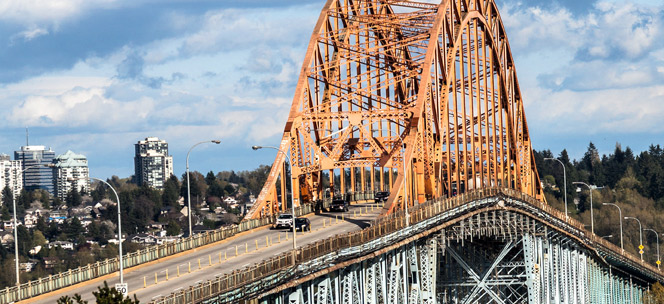The Problems With Pricing

Politicians are masters at spin. Governments don’t spend our money; they invest it. Government doesn’t have debt interest payments any more, it now services debt. Giving money to companies is never corporate welfare or a handout – it’s a job creation grant.
The latest fiction? Government would never, ever dream of taxing your roads; they’ll simply price them instead.
But make no mistake. Put the TransLink mayors on truth serum and they’d confess that road pricing is just another way to take more money out of your wallet and give it to an agency that still hasn’t proved its effectiveness or efficiency to taxpayers. It’s another TransLink tax.
The road pricing debate has taken two forms in the Lower Mainland, both of which should worry taxpayers.
The first idea, suggested by Delta Mayor Lois Jackson and former Surrey Mayor Dianne Watts, is to put a $1 toll on every bridge in the region. However, the math simply doesn’t work.
In order to cover the construction costs of the Port Mann, Golden Ears, a rebuilt Pattullo and a new Massey – plus generate the money the TransLink mayors want to give TransLink for their massive expansion plans, we estimate tolls would have to bring in more than $770 million a year.
Given current crossing numbers, that means a toll of $2.04 every time a driver crosses one of those dozen bridges. Even if you cut the extra TransLink funding out of the mix, the toll would be more than $1.50.
Those bridge tolls would come on top of the 48 cents per litre we already pay in gasoline taxes in the Lower Mainland – the second highest on the continent.
And there would still be unfairness, as the City of Vancouver would almost certainly refuse to allow its downtown bridges to be part of the scheme.
The other road tax option is to charge Lower Mainland drivers for every kilometre they drive. This would again need to be set at a rate to cover off the bridges, and would simply add more cost to already overtaxed drivers.
If the TransLink mayors really want bridge tolls, we believe four important taxpayer conditions must be met.
First, the people must be allowed to vote on the plan and the calculations that will be used. This is a new form of taxation and therefore must be approved by voters. To her credit, Premier Christy Clark agrees.
Second, all bridges must be included. If fairness is one of the justifications for taxing roads, then every bridge – even the ones in the City of Vancouver – must be part of the system.
Third, a strong, publicly-accepted privacy plan must be put in place. Giving government the ability to track where we go is a slippery slope, especially given their record of not taking privacy seriously. Think of the concerns over Compass Cards expressed by groups like the Battered Women’s Support Services Society; one can see how those problems would be even worse if where we go is being recorded by a government agency.
Fourth, taxpayers should demand revenue neutrality. This should not be a cash grab for government. Simply adding road pricing to our already exorbitant gas taxes is double dip taxation – we already pay a form of it in gas taxes. Every dollar in road tolls should be matched by a cut in gas taxes.
The TransLink mayors still haven’t responded to the top line message of last year’s tax rejection. They are still not reprioritizing TransLink or municipal spending to cover off what they continue to claim is the top priority in the region. Instead, they are trying to find any way possible to get into our wallets without our permission.
We told them no once – we can do it again if need be.